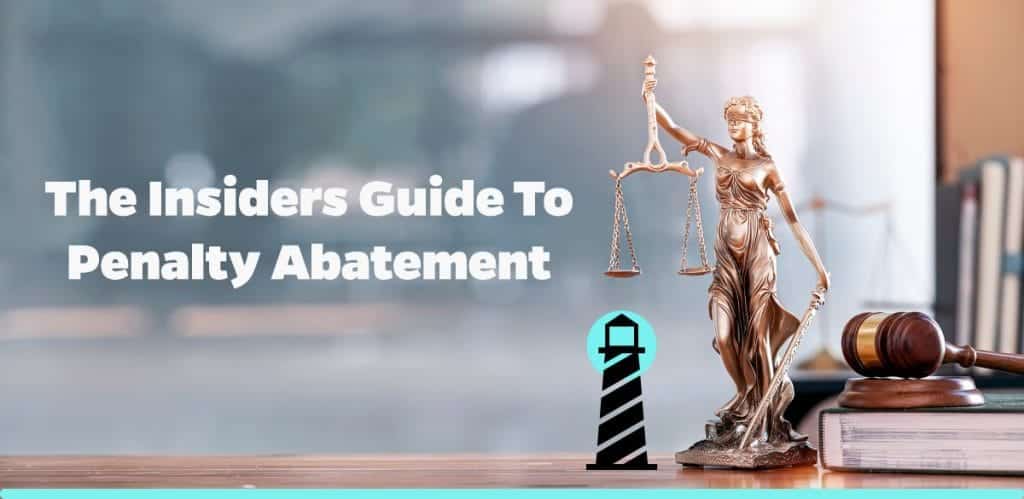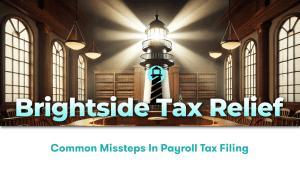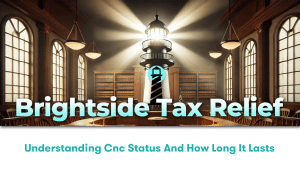Understanding Tax Penalty Abatement
At Brightside Tax Relief LLC, our tax relief experts assist clients across the nation in understanding and navigating the complexities of the U.S tax system. One term that frequently puzzles taxpayers is “Tax Penalty Abatement.” Simply put, tax penalty abatement is the reduction or cancellation of penalties imposed by the IRS.
During your tax journey, you may encounter some late fees and penalties due to delayed or incomplete payments. However, there are provisions by the IRS to waive off these additional charges under certain extenuating circumstances. This is where tax penalty abatement comes into play.
Types of Penalties that can be Abated
The IRS can impose a wide array of penalties. But don’t fret, as there are avenues you can explore to have these penalties abated. Among the assessable penalties most known for abatement include:
– Late filing of a tax return
– Failure to pay taxes on time
– Negligent discrepancies in tax reporting
– Incorrect valuations and assessments on federal estate tax
However, the key is to understand that no two tax situations are entirely similar and that abatement might not always be an available remedy in all circumstances.
Reasonable Cause for Penalty Abatement
The IRS is not a heartless machine. It acknowledges that sometimes, life events might interfere with timely tax payments, and hence allows room for penalty abatement if you can establish a “reasonable cause.” Some legitimate reasons for missed or delayed payments include:
– Fire, natural disaster, or other disturbances
– Inability to obtain necessary financial records
– Death, severe illness, or incapacitation
While personal reasons can sometimes also be considered, bear in mind that ‘forgetfulness’ or ‘ignorance of the law’ does not usually qualify for abatement.
First Time Penalty Abatement (FTA)
The IRS’s First Time Penalty Abatement policy is another viable option if you’ve maintained an otherwise clean compliance history. This one-time benefit is for individuals who have not had any penalties for the previous three years and have paid, or arranged to pay, any due tax.
In such special cases, even if your late payment wasn’t due to a reasonable cause, the IRS may still grant abatement for penalties associated with:
– Failure to file
– Failure to pay
– Failure to deposit certain taxes
Applying for Penalty Abatement
If you’re facing edges due to penalties and believe you’re eligible for tax penalty abatement, you can apply either over the phone, via a written request, or by using Form 843. This form, titled “Claim for Refund and Request for Abatement,” details the type of penalty, reason for penalty, why you believe it should be abated, and documentary evidence supporting your claims.
Selecting a Tax Relief Company
While the IRS provides channels for penalty abatement, without proper guidance, traversing through the tax arena can be stressful and time-consuming. Here is where tax relief companies like ours, Brightside Tax Relief LLC, step in.
We bring expert knowledge, comprehensive experience, and negotiation skills to ensure your relationships with tax authorities are smooth and beneficial. Additionally, we understand the nuances of Tax Penalty Abatement and can guide you efficiently through the application process, maximizing your chances of success.
Conclusion
At Brightside Tax Relief LLC, we believe in empowering you with the knowledge that demystifies tax-related anxieties. Tax Penalty Abatement might seem challenging to comprehend, but it doesn’t have to be a road you walk alone.
We hope this blog post has enlightened you on the various facets of Tax Penalty Abatement in a simple, approachable manner. Remember, timely action can help you save thousands in penalties, so don’t hesitate to seek professional help from experienced tax relief companies. After all, knowledge is power and, with power, comes confidence to conquer any tax challenges you may encounter.




